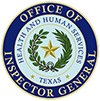Emergency ambulance services provider audited by OIG
OIG auditors reviewed claims submitted by American Medical Response (AMR), a ground emergency ambulance services provider, to verify that documentation accurately depicted the level of services performed. The sample of 120 claims for review was provided by two managed care organizations (MCO) that had paid the provider for emergency ground transport.
Auditors found that the provider had met most requirements among the sample of claims submitted by MCOs, Superior and Amerigroup. Specifically, the provider had maintained records with the correct service date, documentation establishing the level of care and whether the ambulance transported the client to a location equipped to handle a medical emergency. However, there were errors in some of the selected claims.
In two claims from the selected 120 reviewed by auditors, AMR inaccurately documented the miles that ambulances had transported clients. The first claim reported 34 miles traveled when the provider had only transported the client 13 miles. Another claim reported a client had been transported 247 miles for treatment when the actual distance was 24.7 miles. Combined, these errors led to more than $1,144 in overpayments to the provider. The OIG recommended this amount be repaid to the state and that AMR implement a process to verify miles traveled on a call.
AMR also submitted 14 claims out of 120 with inaccurate client information, including misidentifying the patient in payment requests submitted to the MCO’s. These errors resulted in 7 percent of clients being billed for an ambulance ride they never received. As a result, AMR received $4,220 in overpayment for these transport services. The OIG recommended the provider return the overpayment amount to the state and strengthen the tools used for identity verification.
AMR received more than $13.7 million from Texas Medicaid between September 1, 2019 and August 31, 2021, including payments made by Texas Medicaid MCOs and fee-for-service payments from the state. Clients receive emergency ambulance transport when a person could suffer harm to themselves or an unborn child if emergency medical intervention is not provided. Clients may also qualify for emergency transport if a behavioral health crisis could lead the client to hurt themselves or others.
Read the full audit for more information on the OIG website.

